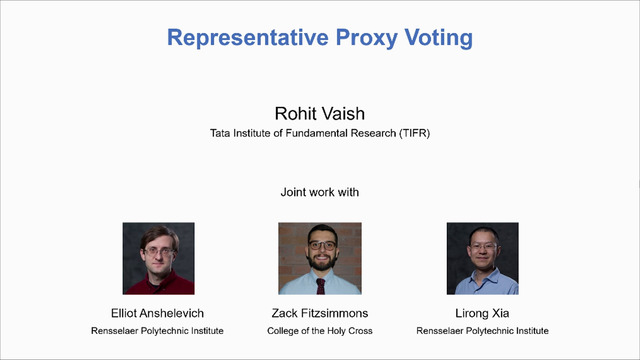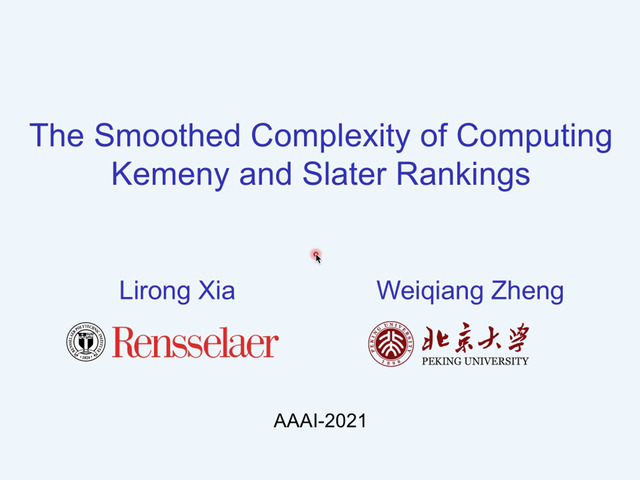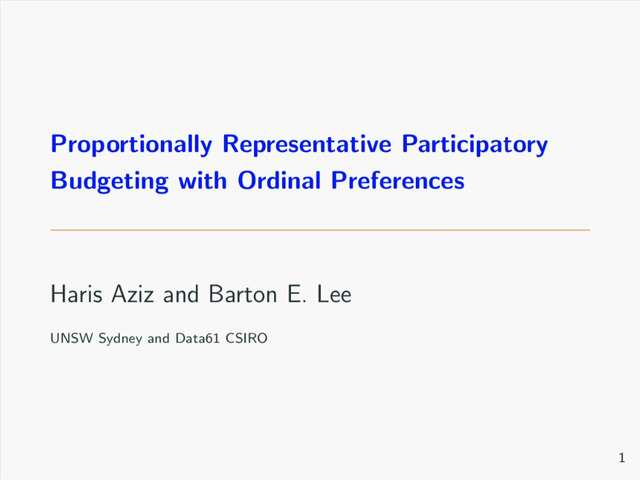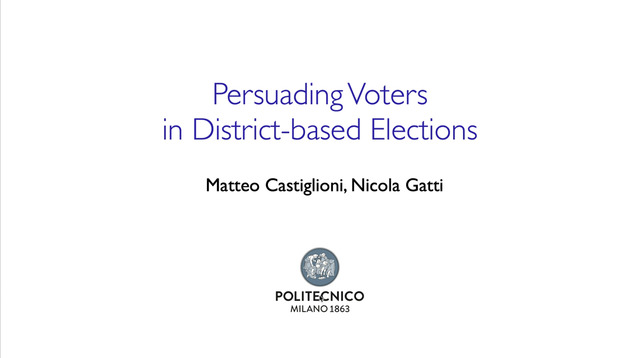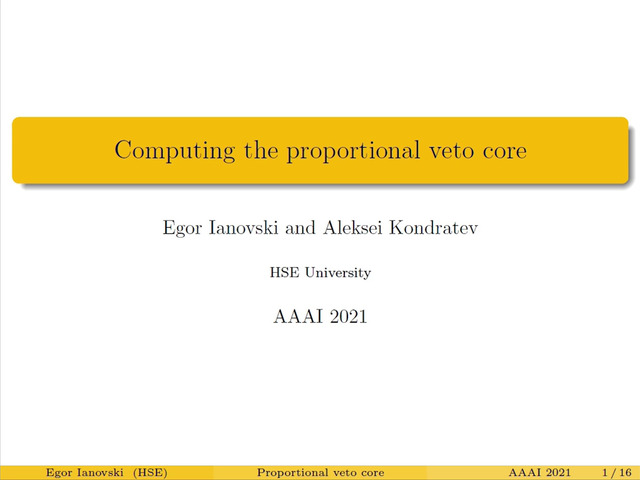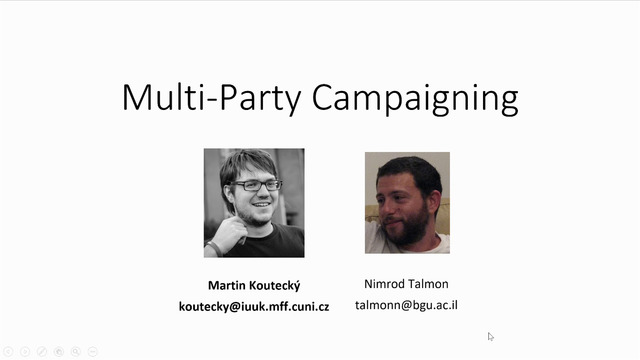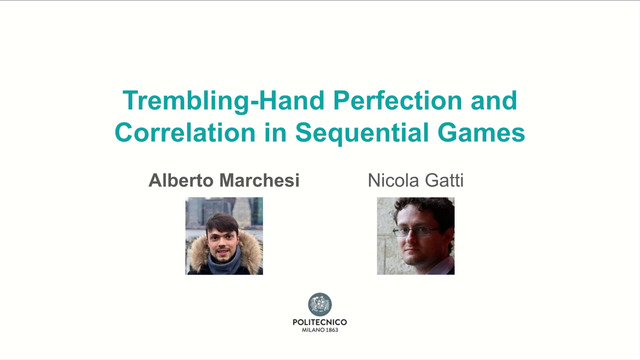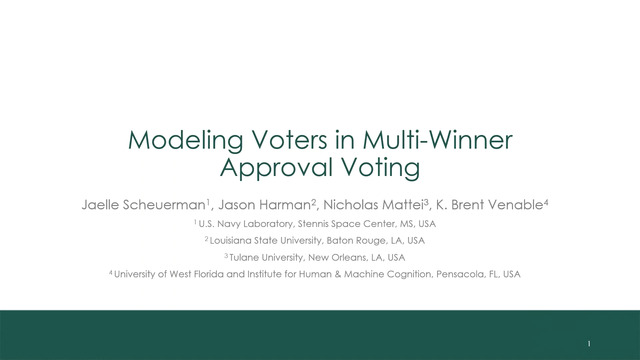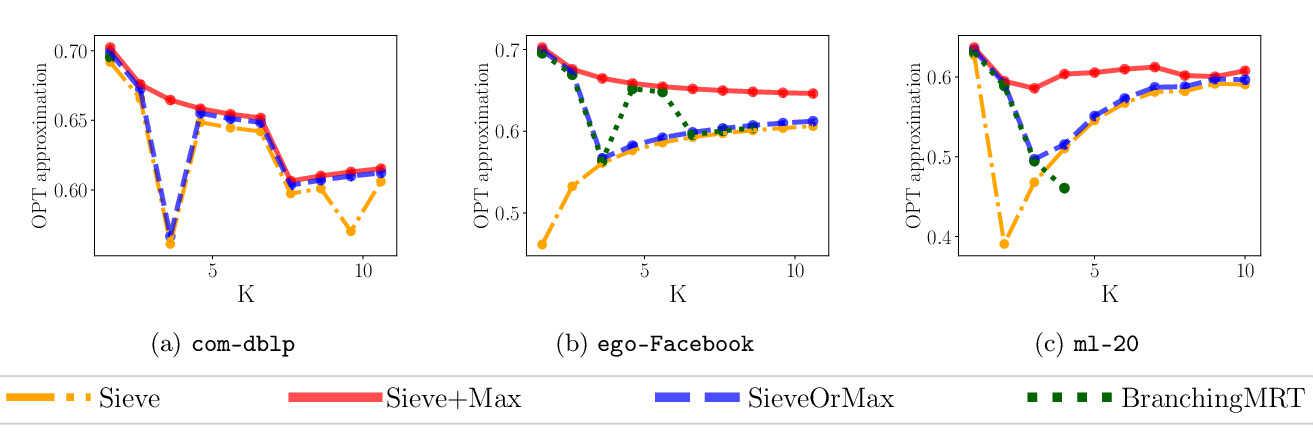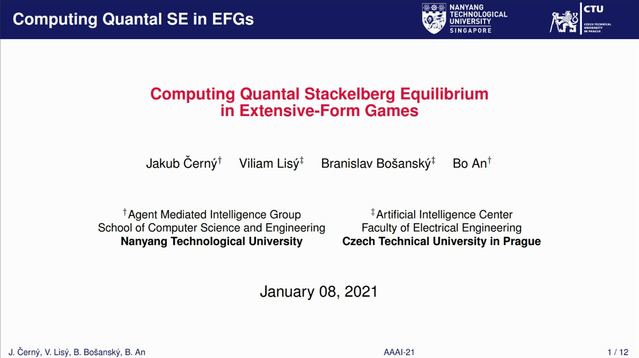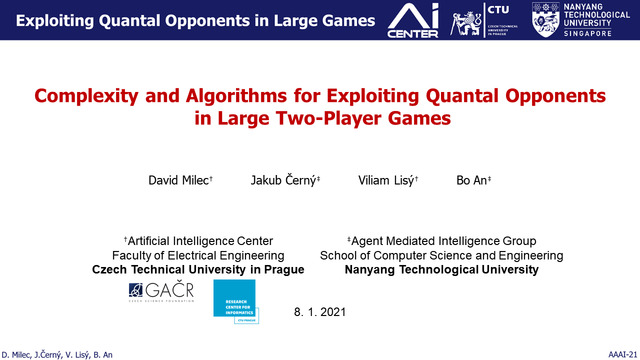Abstract:
The computational study of election problems generally focuses on questions related to the winner or set of winners of an election. But social preference functions such as Kemeny rule output a full ranking of the candidates (a consensus). We study the complexity of consensus-related questions, with a particular focus on Kemeny and its qualitative version Slater. The simplest of these questions is the problem of determining whether a ranking is a consensus, and we show that this problem is coNP-complete. We also study the natural question of the complexity of manipulative actions that have a specific consensus as a goal. Though determining whether a ranking is a Kemeny consensus is hard, the optimal action for manipulators is to simply vote their desired consensus. We provide evidence that this simplicity is caused by the combination of election system (Kemeny), manipulative action (manipulation), and manipulative goal (consensus). In the process we provide the first completeness results at the second level of the polynomial hierarchy for electoral manipulation and for optimal solution recognition.


